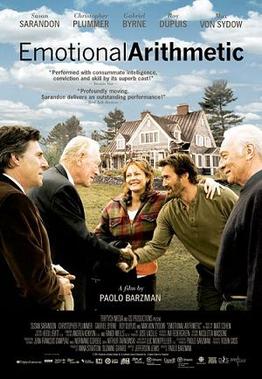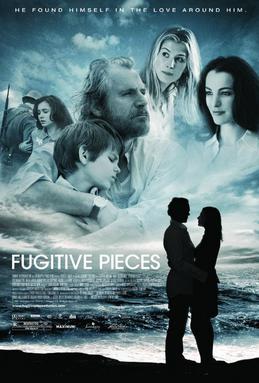Canadian literature is written in several languages including English, French, and to some degree various Indigenous languages. It is often divided into French- and English-language literatures, which are rooted in the literary traditions of France and Britain, respectively. The earliest Canadian narratives were of travel and exploration.

Imre Kertész was a Hungarian author and recipient of the 2002 Nobel Prize in Literature, "for writing that upholds the fragile experience of the individual against the barbaric arbitrariness of history". He was the first Hungarian to win the Nobel in Literature. His works deal with themes of the Holocaust, dictatorship, and personal freedom.

Yad Vashem is Israel's official memorial to the victims of the Holocaust. It is dedicated to preserving the memory of the Jews who were murdered; echoing the stories of the survivors; honoring Jews who fought against their Nazi oppressors and gentiles who selflessly aided Jews in need; and researching the phenomenon of the Holocaust in particular and genocide in general, with the aim of avoiding such events in the future. Yad Vashem's vision, as stated on its website, is: "To lead the documentation, research, education and commemoration of the Holocaust, and to convey the chronicles of this singular Jewish and human event to every person in Israel, to the Jewish people, and to every significant and relevant audience worldwide."

Anne Michaels is a Canadian poet and novelist whose work has been translated and published in over 45 countries. Her books have garnered dozens of international awards including the Orange Prize, the Guardian Fiction Prize, the Lannan Award for Fiction and the Commonwealth Poetry Prize for the Americas. She is the recipient of honorary degrees, the Guggenheim Fellowship and many other honours. She has been shortlisted for the Governor General's Award, the Griffin Poetry Prize, twice shortlisted for the Giller Prize and twice long-listed for the International Dublin Literary Award. Michaels won a 2019 Vine Award for Infinite Gradation, her first volume of non-fiction. Michaels was the poet laureate of Toronto, Ontario, Canada from 2016 to 2019, and she is perhaps best known for her novel Fugitive Pieces, which was adapted for the screen in 2007. Michaels won the 2024 Giller Prize for her novel Held.

Maus, often published as Maus: A Survivor's Tale, is a graphic novel by American cartoonist Art Spiegelman, serialized from 1980 to 1991. It depicts Spiegelman interviewing his father about his experiences as a Polish Jew and Holocaust survivor. The work employs postmodern techniques, and represents Jews as mice and other Germans and Poles as cats and pigs respectively. Critics have classified Maus as memoir, biography, history, fiction, autobiography, or a mix of genres. In 1992, it became the first and only graphic novel to win a Pulitzer Prize.

Aharon Appelfeld was an Israeli novelist and Holocaust survivor.
Allan Levine is a Canadian author from Winnipeg, Manitoba, known mainly for his award-winning non-fiction and historical mystery writing.
The Holocaust has been a prominent subject of art and literature throughout the second half of the twentieth century. There is a wide range of ways–including dance, film, literature, music, and television–in which the Holocaust has been represented in the arts and popular culture.

The Boy in the Striped Pyjamas is a 2006 historical fiction novel by Irish novelist John Boyne. The plot concerns a German boy named Bruno whose father is the commandant of Auschwitz and Bruno's friendship with a Jewish detainee named Shmuel.

Emotional Arithmetic is a 2007 Canadian drama film directed by Paolo Barzman, based on the novel by Matt Cohen, about the emotional consequences for three Holocaust survivors when they are reunited decades later. The film stars Gabriel Byrne, Roy Dupuis, Christopher Plummer, Susan Sarandon, and Max von Sydow. It opened at the Toronto International Film Festival, in Toronto, Ontario, Canada, on September 15, 2007, and was released, in Canada, on April 18, 2008.

Fugitive Pieces is a 2007 Canadian drama film directed by Jeremy Podeswa, who also adapted the film from the novel of the same name written by Anne Michaels. The film tells the story of Jakob Beer, who is orphaned in Poland during World War II and is saved by a Greek archeologist. The film premièred 6 September 2007 as the opening film of that year's Toronto International Film Festival (TIFF).

Nava Semel was an Israeli author, playwright, screenwriter and translator. Her short story collection Kova Zekhukhit was the first work of fiction published in Israel to address the topic of the "Second Generation"—children of Holocaust survivors.
I Was a Child of Holocaust Survivors is a 2010 animated film by Ann Marie Fleming based on a 2006 autobiographical graphic novel by Bernice Eisenstein. In the book and its film adaptation, Eisenstein explores her own identity through the experience of her parents, both Auschwitz survivors.
The Helen and Stan Vine Canadian Jewish Book Awards were a Canadian program of literary awards, managed, produced and presented annually by the Koffler Centre of the Arts to works judged to be the year's best works of literature by Jewish Canadian writers or on Jewish cultural and historical topics.
Lev Raphael is an American writer of Jewish heritage. He has published work in a variety of genres, including literary fiction, murder mysteries, fantasy, short stories, memoir and non-fiction, and is known for being one of the most prominent LGBT figures in contemporary Jewish American literature. He is one of the first American-Jewish writers to publish fiction about children of Holocaust survivors, beginning to do so in 1978.
Max T. Eisen was a Slovak author, public speaker, and Holocaust educator. He travelled throughout Canada giving talks about his experiences as a concentration camp survivor, to students, teachers, universities, law enforcement personnel, and the community at large.

Chrysostomos Dimitriou, also known by his episcopal names of Chrysostomos of Zakynthos or Chrysostomos of Trifylia and Olympia, was the Greek Orthodox bishop of the island of Zakynthos during World War II and the bishop of Trifylia and Olympia postwar until his death.

Held is a 2023 novel by writer and poet Anne Michaels, published by Knopf, a subsidiary of Penguin Random House. An epic novel, spanning from 1902 to 2025, the work tells the story of multiple members of a family spanning four generations. The locations or settings are varied and include a French battlefield during World War I, 1900s Paris, mid-20th century Suffolk, 2025 in Finland, and London. Many of the settings take place in war zones. The narrative is told unconventionally as the plot shifts back and forth from the past to the present or future. The characters in each time period also have few connections to one another, but although the disparate stories have different relationships, characters and plots, several themes recur throughout the narratives. Themes explored by various characters include mortality and death, the philosophy of science, love, the soul, grief, and forms of image capture such as photography.











